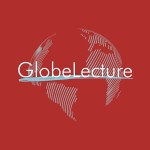
Cynthia Miller Idriss: "Extremism and Youth Radicalisation"
This lecture discusses changes in the U.S. national strategy to prevent and counter extremist violence, including an embrace of public health style approaches to prevention. Dr. Miller-Idriss also reviews recent trends in U.S. political and hate-fueled violence and shares an emerging evidence base about the effectiveness of two core interventions: short form “prebunking” videos and community-based capacity building with parents, caregivers, youth mentors, faith leaders, mental health professionals, and educators. She also highlights key areas of transatlantic dialogue and cooperation about promising practices in each country. Cynthia Miller-Idriss is an award-winning author and scholar of extremism and radicalization. She is the founding director of the Polarization and Extremism Research & Innovation Lab (PERIL) at the American University in Washington, DC, where she is also a Professor in the School of Public Affairs and in the School of Education. Dr. Miller-Idriss regularly testifies before the U.S. Congress or briefs policy, security, education and intelligence agencies in the U.S., the United Nations, and other countries on trends in domestic violent extremism and strategies for prevention and disengagement. She serves on the international advisory board of the Center for Research on Extremism (C-REX) in Oslo, Norway and is a member of the Southern Poverty Law Center (SPLC)’s Tracking Hate and Extremism Advisory Committee. This GlobeLecture was organized with Oliver Decker and the Else-Frenkel-Brunswik-Institute for Democracy in Saxony Recorded on 3 November 2023 You can find the video recording of the lecture here